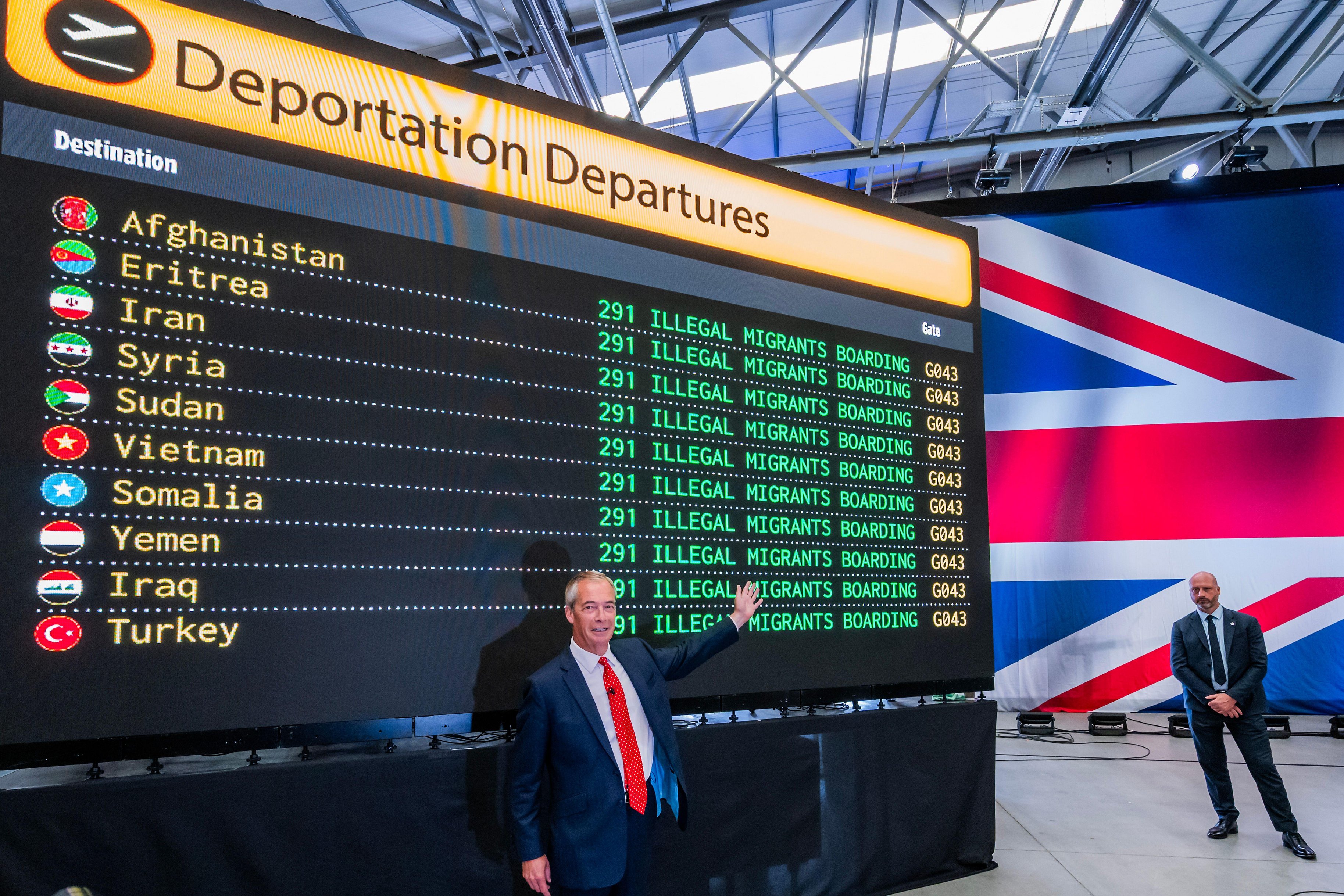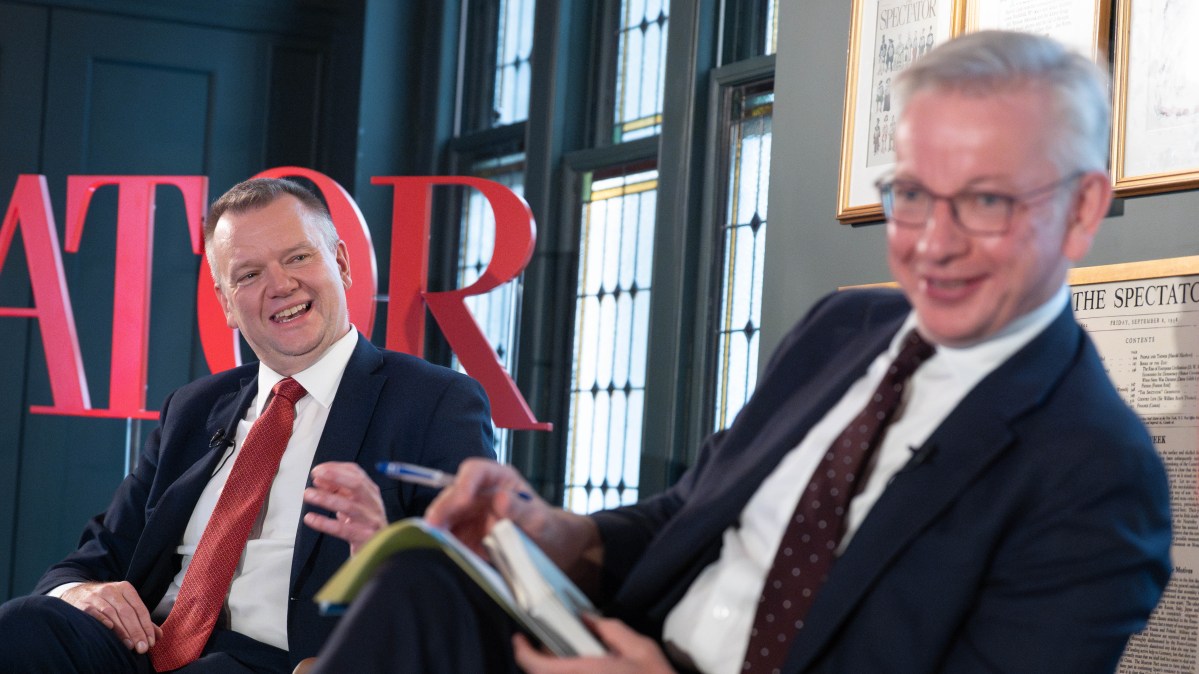Labour is banking on voters having moved on from Brexit in order to attempt to paint Nigel Farage’s aversion to Europe as a barrier to progress.
Nick Thomas-Symonds, the European relations minister, said on Wednesday that teenagers collecting their GCSE results last week “weren’t even eight-year-olds when the referendum happened”, as government sources pointed to a deliberate tactic to “move on from the polarisation” they believe fuels Reform’s success.
In an announcement ostensibly about a food and drink deal with the European Union, Thomas-Symonds repeatedly attacked Farage, accusing him of betraying British businesses.
He accused Reform of “dragging Britain backwards” and said the only relationship Farage wants with Europe is his pension package. “Aside from, frankly, his pension package, Nigel Farage can’t bring himself to have any relationship with the EU, unable to recognise what is actually the best choice for families across Britain,” he told a Westminster event.

Farage and Zia Yusuf at the launch of Reform’s deportation strategy
GUY BELL/ALAMY
Ministers are increasingly seeking to identify Reform as Labour’s official opposition, and Farage as their main target.
The intervention was planned before Farage unveiled his major deportations plan on Tuesday, but officials were quietly pleased to be able to contrast the two approaches.
• How other countries are tackling migrants — even the liberal ones
Reform sources said they were relaxed about the pivot to focus on them, which they believe legitimises the gains they have seen in the polls as Labour’s popularity reached its lowest level in six years.
According to a YouGov poll for The Times, just 20 per cent of people would vote for Sir Keir Starmer’s party, while Reform has the lead in England and Wales.
Labour’s numbers are only one point down on the previous week but marked the worst result since 2019. Reform led the weekly voting intention poll, with 28 per cent of respondents saying they intended to vote for the party.
Despite having four MPs, Reform has consistently topped the polls for months after taking the majority of council seats up for election in May. The party is confident of doing so again next spring.
A Reform source said: “Labour is behaving like the opposition and not the government.”
They also believe Farage has moved on from the political battle that defined his career, and think Brexit isn’t an issue many voters feel as passionately about now.
“We don’t talk about it all the time. Do we still believe in Brexit? Yeah. But the debate is 10 years on now,” they said.
Farage was asked on Wednesday whether he would do a migration deal with the EU and did not rule it out, saying he would consider it if the conditions were right.
Taking the fight to Reform over the EU could be a risky strategy for Labour.
Polling from the More in Common think tank found that while 71 per cent of voters believe the UK economy has got worse since leaving the EU, the issue of how much sovereignty should be ceded to Brussels is more divisive. Some 38 per cent would rather the government prioritise sovereignty and set UK-only rules, even if this means lower growth, compared to 44 per cent who are open to following more EU rules to boost growth.
One senior government source said that the public had moved on enough from Brexit. They said the growing threat posed by authoritarian states such as Russia, Iran and China meant there was more of a desire for Britain to protect itself by working closer with allies.
They insisted, however, that Starmer’s ultimate aim is not to rejoin the EU. “We have done Brexit, it’s not about rehashing whether Brexit was a good thing or bad thing, it’s about how we can make it work for today,” they said.
Labour is alive to claims of “betrayal” by Farage. Thomas-Symonds said in his speech: “Some will hysterically cry even treason. Some will say we’re surrendering sovereignty or freedoms, but that is nonsense.”

Labour is attempting to rebuild ties with the EU and improve the situation for businesses
CHRIS RATCLIFFE/BLOOMBERG/GETTY IMAGES
To paint a positive vision of closer ties with the EU, Farage was presented as a blocker to progress.
The government source said. “He’s beyond happy to suggest that he wants to do deals with the Taliban, but he can’t bring himself to do any deals with the EU.”
A second insider said: “The thing Keir has done best over the last six months has been his place on the world stage. This could be leading to a set of Farage being aligned with the villains, and we’re making an impact on the global stage.”
Ministers have become more comfortable with talking up the benefits of working with the EU, but have been cautious. The strategy has been — in the words of one senior Labour aide — to “make Brexit boring again”. But that does not mean future negotiations will be smooth.
European sources indicated they would be “tough” in negotiations and that Britain would concede on some areas.
Labour strategists also believe there is value in trying to remove the heat from the debate.
“There has to be a mechanism for moving beyond the polarisation of Brexit,” the insider said. “A lot of Reform’s success relies on anger, and it relies on the feuding and conflict of that time, so he has to keep that going.”
The first source agreed, adding: “When the narrative is that Britain is failing, Nigel Farage makes hay, that’s the fuel for his model of politics.”
But added: “If he’s not going to talk about what the consequences of his decisions or policies are, then we will.”
